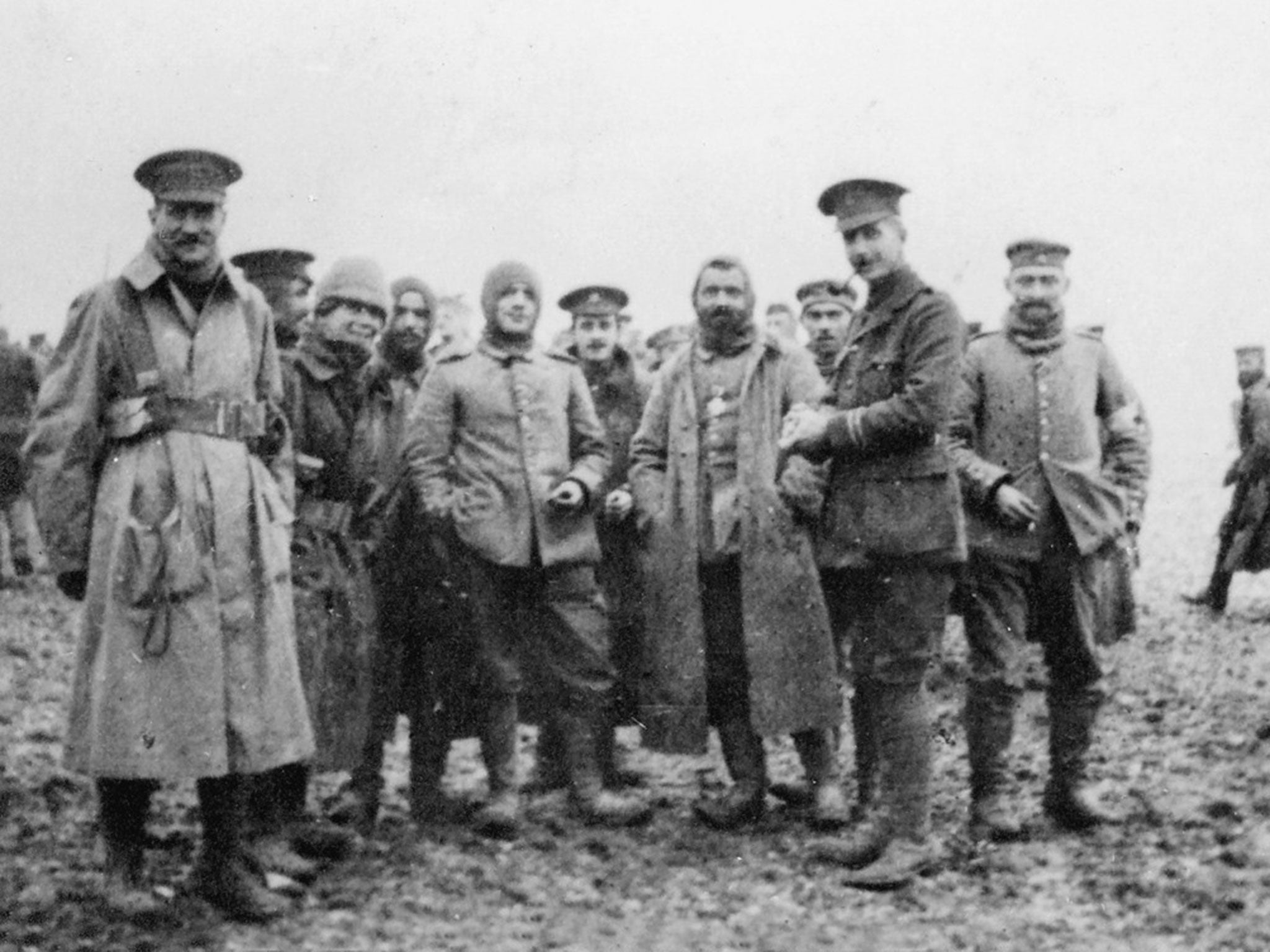When students rallied to the Great War cause
Oxford female medic volunteers were told to 'go home and keep quiet'

Your support helps us to tell the story
From reproductive rights to climate change to Big Tech, The Independent is on the ground when the story is developing. Whether it's investigating the financials of Elon Musk's pro-Trump PAC or producing our latest documentary, 'The A Word', which shines a light on the American women fighting for reproductive rights, we know how important it is to parse out the facts from the messaging.
At such a critical moment in US history, we need reporters on the ground. Your donation allows us to keep sending journalists to speak to both sides of the story.
The Independent is trusted by Americans across the entire political spectrum. And unlike many other quality news outlets, we choose not to lock Americans out of our reporting and analysis with paywalls. We believe quality journalism should be available to everyone, paid for by those who can afford it.
Your support makes all the difference.This week, Keele University Football Club is visiting Belgium and Germany to play a match against students from Aachen University as part of Keele's First World War centenary remembrance programme. They will recreate the Christmas Truce football match between British and German soldiers.
"Operation Friendship" marks 100 years since the kickabout in no man's land during the temporary Christmas armistice of 1914. We have heard a lot about life during the war during this centenary year, but not a great deal about the conflict's impact on Britain's universities. Many, of course, simply left their studies behind. More than 300 students left King's College, London, within a year of the outbreak of war. After two years, 390 students and staff departed from what is now the University of Manchester.
All was far from well for those who stayed behind.
A Dean of Edinburgh University told of a letter he received from a troubled student: "He was torn between patriotism, which in 1914 was deeply felt, and his dedication to the profession on which he had embarked." The War Office advised students in their fourth and fifth years to keep on studying. And when female medics from Oxford put their names forward to aid the war effort, the War Office replied: "All that was required of women was to go home and keep quiet."
Fortunately, such attitudes began to fade with the fire and smoke left by the ravages of war. Joseph Wells, a student journalist, wrote light-heartedly of the campus cook who stayed behind: "We are sure that all those in College will agree that he could not possibly render his country better service than he is doing now."
Those who remained at university aided their fellow students and countrymen through research and scientific productivity. At Manchester, a deep-sea hydrophone, a power source for an airplane radio, and a furnace to rapidly produce shells were pioneered. John Scott of Oxford University designed a prototype for the first gas mask. Medical students used their knowledge and resources to advance the war effort. At Armstrong College, Newcastle and Edgbaston campus, Birmingham, military hospitals popped up.
Students outside of scientific disciplines did their bit to provide relief to soldiers. Cambridge students raised £700 for the YMCA to build a hut in Flanders, Belgium, for soldiers to write home from. Oxford's Wounded Soldiers' Garden Club provided 250,000 "very ample teas" to soldiers.
Military training was also conducted on campus. At Edinburgh, military skills such as healing burns and wounds, erecting tents and stretcher bearing were taught. An excerpt from Oxford's student newspaper describes the military tinge that could be felt on campus: "Drilling became the main occupation of the term, and khaki was recognised as academical dress by the Vice-Chancellor's special order."
Student newspapers played their role, too. Spreading patriotism through the written word psyched up students for war. In the Durham University Journal, "national defence, patriotism were to be found nasally braying in issue after issue", writes Edgar Jones. Regardless of the score during this week's football match, students should take a moment to reflect on the First World War: whatever its troubles now, life on campus was a great deal harder for many whose undergraduate days fell between 1914 and 1918.
Join our commenting forum
Join thought-provoking conversations, follow other Independent readers and see their replies
Comments